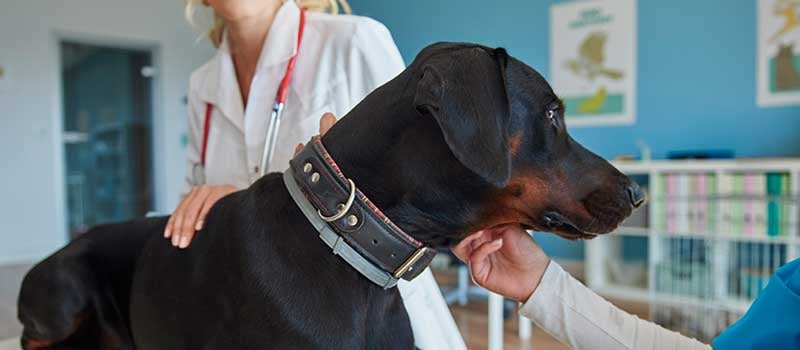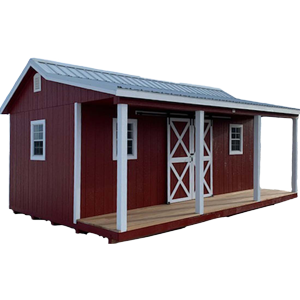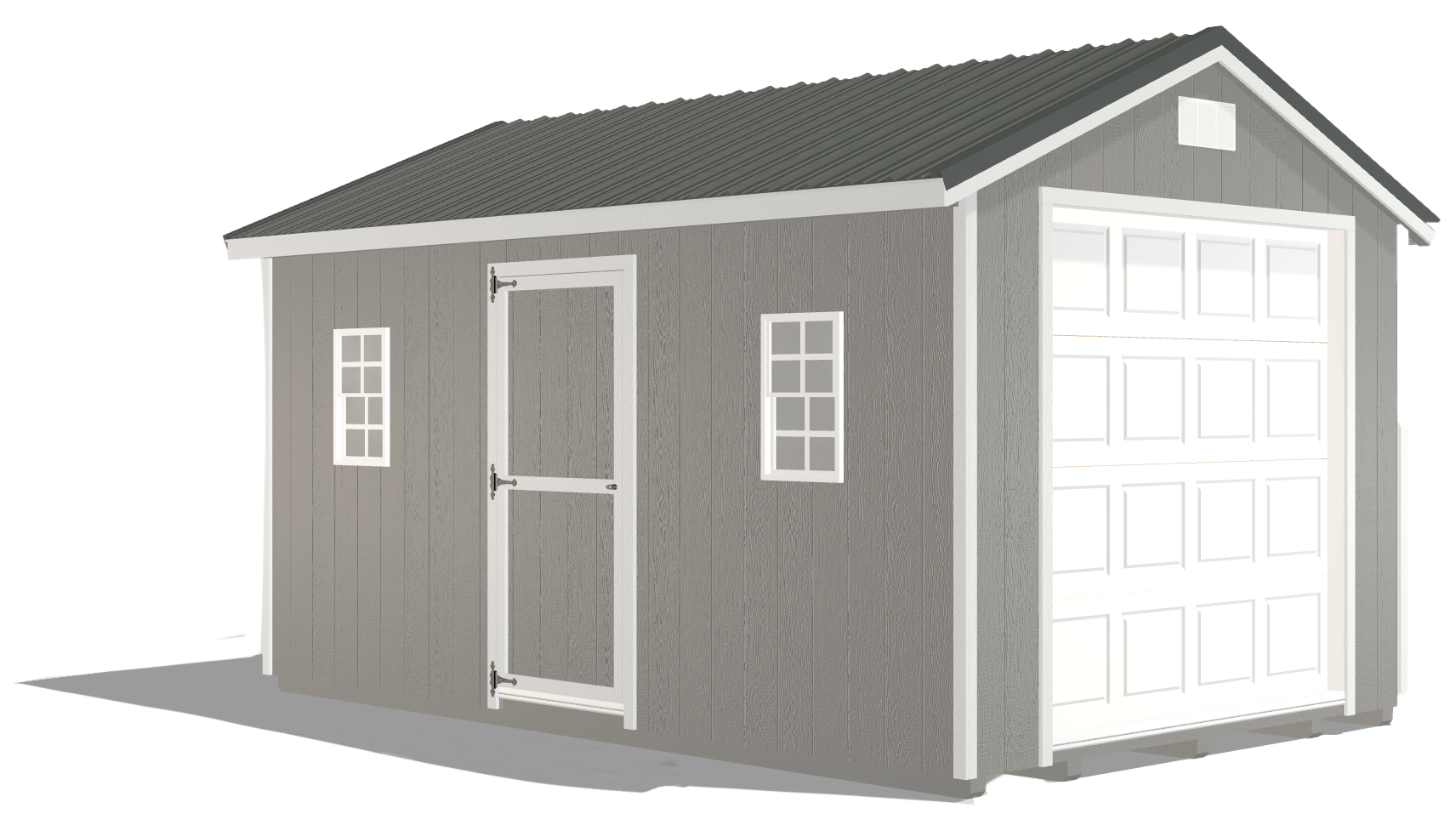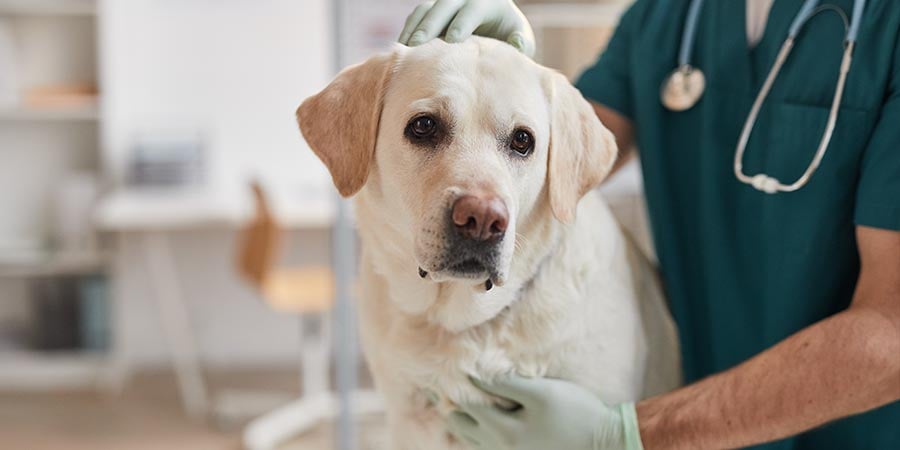Dog Vet 101: How To Choose A Veterinarian For Your Dog
by Dakota Storage Buildings, on January 19, 2022
A good dog vet can help ensure your dog stays healthy and happy.
Whether an outdoor working dog or an in-home pet, choosing the right veterinarian is something all dog owners should carefully consider. Having a good dog vet is crucial in keeping dogs healthy and happy for a long time.
A good veterinarian will diagnose and provide treatment for health problems, consult about preventive healthcare, and carry out medical and surgical procedures, such as vaccinations, dental work, and setting fractures. Their job is to partner with you in meeting your dog's health needs, ensuring their wellbeing for as long as possible.
When choosing a dog vet, use the same care and criteria you would in selecting a physician or dentist. Think about what is important to you — location, office hours, payment options, and the range of medical services provided. Your goal should be to find a vet you believe will do right by you and your dog.
Here are some best practices for choosing a good veterinarian.
 Ask for Personal Recommendations
Ask for Personal Recommendations
Start by asking for recommendations from neighbors, friends, and family members. For more, try asking groomers, local dog trainers, or even posting an inquiry on Facebook or another social platform. As you get answers, ask why they chose their veterinarian and what they like best about their experience.
If you have a dog vet but are relocating to another city or state, ask if they can recommend a practice where you will be living. Many times they have colleagues in other towns whose practice policies and services are similar to theirs. If you are switching vets, remember to ask them to provide copies of your dog’s medical records to the new practice.
Find a Licensed Dog Vet with Expertise
Veterinarians specialize in different kinds of animals, so you’ll want to find a vet who has canine expertise. Also, make sure the vet you choose is licensed in your state. Veterinarians must be licensed in order to practice in the United States. Licensing requirements vary by state, but prospective veterinarians in all states must complete an accredited veterinary program and pass the North American Veterinary Licensing Examination.
Visit Before You Commit
While you can ask for recommendations, look over the vet’s website, and check credentials — all of which are very insightful — be sure to visit each potential vet practice in person. Create a shortlist of options then schedule a visit. Here are a few things to keep in mind as you tour dog vet facilities and meet the staff.
Expect a Clean Facility
Look around the facility and note the level of cleanliness. If the place seems a little dingy or dirty, it could be a sign that they’re understaffed, have an unsafe environment, or take a more casual approach to care. Since it is a medical facility, it should be just as clean as a hospital for humans.
Inquire About Their Approach to Care
Veterinarians tend to have different philosophies when it comes to care and medicine. Have a brief discussion with your potential vet and see what they think about wellness and prevention issues for dogs. For example, ask the veterinarians for their beliefs about treating cancer, spaying and neutering, supporting senior dogs, and euthanasia. Do they believe in prescribing holistic or alternative treatments when appropriate? Do they emphasize preventative care or not? If they are not on the same page with you, then you should keep looking.
 Look for Friendliness
Look for Friendliness
Look for a dog vet and clinic staff who greet both dogs and owners with a smile and engage in conversion. This establishes a sense of trust and respect. And when talking about issues or concerns, take note of whether they listen or dismiss them as unnecessary or unimportant. When a practice is unfriendly or inhospitable, and they don't listen to your concerns, it's likely that they won't serve you or your dog well.
Consider Location, Hours, and Cost
If an emergency occurs, you will need to get help quickly. Ideally, if you want a veterinarian that handles emergent visits, they should be no more than an hour away.
Office hours are also important to know before settling on a dog vet. Be sure to ask about regular office hours to be sure they are compatible with your schedule.
Lastly, cost matters. While you can't put a price tag on your dog's health, there is a limit. Costs can vary depending on the vet, so see if their prices fit into your budget before you commit to them. Ask about written estimates for services, what payment methods are accepted, if payment plans or financial assistance options are available, and if they take your pet insurance (if you have any).
More Helpful Dog Owner Insights
It doesn’t matter if you have a working dog or an indoor pet dog; giving them proper care is vital. Finding the right vet is just one way you can ensure their health and happiness. Having a happy dog requires more than just a great vet, though. It also includes providing outdoor space, socialization, stimulation, instruction, protection, nutrition, and everything in between. For more insights, download our guide to learn more.
More reading:



























